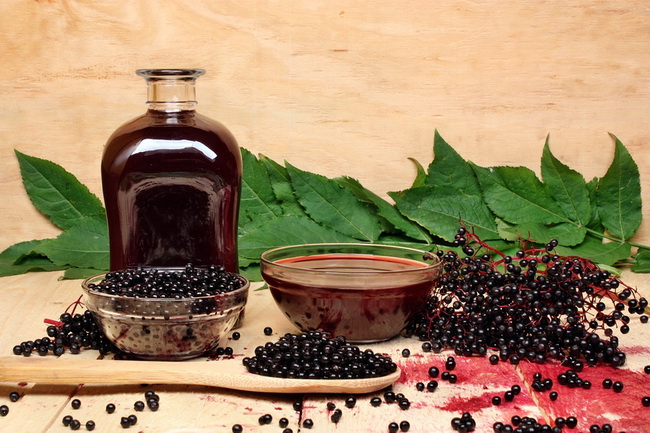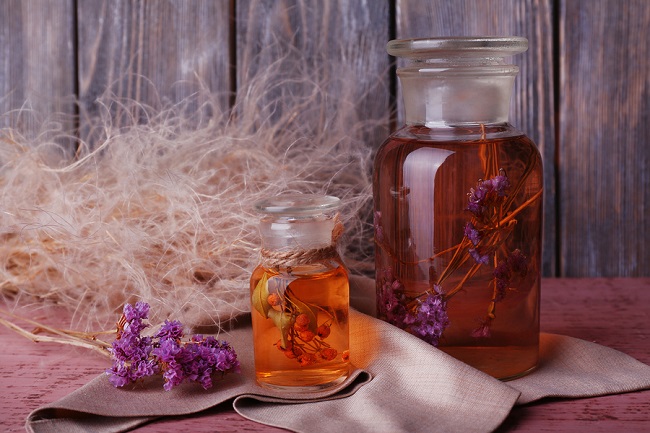- Make It Yourself Lavender Heart-Shaped Bath Bombs!
- 20 Things You Never Knew About “Down There”
- 12 Best Foods For Those Suffering From Arthritis Pain
- 12 Personal Hygiene Mistakes Almost Everyone Makes (Mom Never Told You About #4!)
- 15 Medicinal Plants And Herbs From The Cherokee People
- 12 Mind-Blowing Benefits Of Drinking Coconut Water During Pregnancy
- 12 Outstanding Winter Foods That Won’t Fatten You Up Like A Christmas Turkey
How to Make Your Own Herbal and Other Types of Medicinal Syrups

Photo credit: bigstock.com
When you think of the word syrup, you probably think of pancake syrup but there are many other types of syrup, many of them used to treat health ailments, such as cough syrup and medicinal syrups.
Unfortunately, many of the syrups that are sold at your drugstore are often expensive and full of ingredients you don’t really want, such as high fructose corn syrup (can you say GMO?) or aspartame, artificial colors and flavors, all of which have been linked to serious health issues. When you are trying to help heal an illness, the last thing you want is to fill your body with ingredients known to cause health problems!
If you have been reading many of the articles here at NaturalOn, you know that there is a wide variety of herbs that can help our bodies heal naturally. Sometimes, however, these herbs don’t taste great, and it can be difficult to convince children to take them. By making medicinal syrups, you can “hide” or cover up the bitter taste of some herbs so that people are more willing to consume them.
Making these herbal syrups is as simple as finding a nice combination of medicinal herbs and herbs that are super aromatic. This way, the syrup will not only taste good, but smell appealing as well.
You don’t have to be sick to consume these syrups, either. You can consume them daily as a tonic or dietary supplement. You can even add a teaspoon or two to your daily tea instead of honey or sugar.
Making your own medicinal syrup will work just as well, and probably better, than those over the counter syrups because almost all of Mother Nature’s herbs contain anti-inflammatory compounds that those pharmaceutical syrups do not.
If you are lucky, you have a garden loaded with herbs that you can harvest yourself for the utmost freshness. Otherwise, it’s easy to pick up these herbs at your local health food or natural store, or they can even be purchased online. Be sure that you have some glass bottles with tight fitting lids to store your syrup.
Most syrup use honey, so be sure you find a good source of raw, organic honey, and that you don’t use that junk they try to pass off as honey at your local supermarket. Using raw, organic honey, loaded with healthy bee pollen, is going to make all the difference between just a sugary treat with some herbs in it, and a true syrup loaded with the healing compounds.
You can use just about any herb that you feel works best for you and your family. Don’t be afraid to combine herbs, either. Although elderberry syrup is perhaps the most common and popular syrup you will find, you can also use, either individually or in combination: holy basil, elder flowers, chamomile, marshmallow root, lemon balm, slippery elm bark, stinging nettle, ginger, thyme, turmeric, peppermint, hawthorn berry, lavender, sage, and hop flowers.
Continue to Page 2

Photo credit: bigstock.com
How to Make Medicinal Syrup
Ingredients:
- 1 Ounce of the dried herb of your choice (or a mixture of herbs)
- 16 Ounces (2 cups) of pure water
- 8 Ounces (1 cup) of raw organic honey
- 2 Ounces of brandy (flavored or plain) alternately, if you have made some herbal tincture previously, you can use 2 ounces of that. The alcohol in the brandy or tincture will help to keep the syrup stable over time.
- Essential oil for aroma (optional)
SEE ALSO: Super Health Benefits of This One Little Known Berry
Instructions:
- Place the water and herbs in a pot and simmer over a low heat (do not boil) until the liquid is half of the original amount. This might take 30 to 45 minutes, so be patient.
- When you have 1 cup of liquid in the pot, strain into another clean pot. Use a cheesecloth rather than a sieve
- Add the honey.
- Warm over very low heat, stirring until everything is mixed together well. Do not boil and do not heat over 110 degrees or you will kill off the healthy agents in the mixture
- Add your brandy or tincture and mix well.
- Add two or three drops of essential oil, such as peppermint or spearmint for a nice smell. This is optional, however. Stir well.
- Pour into a glass container with a tight fitting lid or cork top bottle.
- Store in the refrigerator. This should keep for about 6 months.
- If you make more than one type of syrup, label the bottles so you won’t forget which is which.
Dried herbs and flowers begin to lose their potency about 6 to 8 months after they have been dried and exposure to bright lights or sunlight will make them deteriorate even faster, so always look for really fresh herbs. A good quality herb or health food store will list an expiration date or a date when the flowers were picked so you will know you are buying fresh quality herbs and flowers.
References:
































